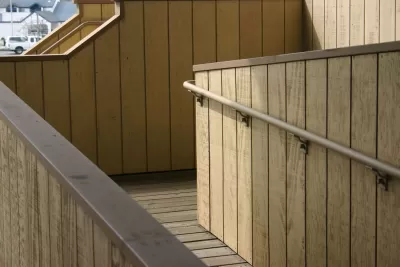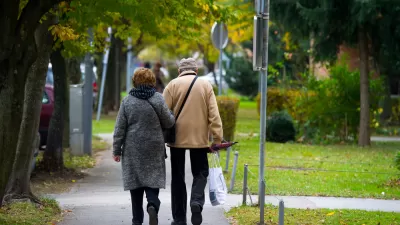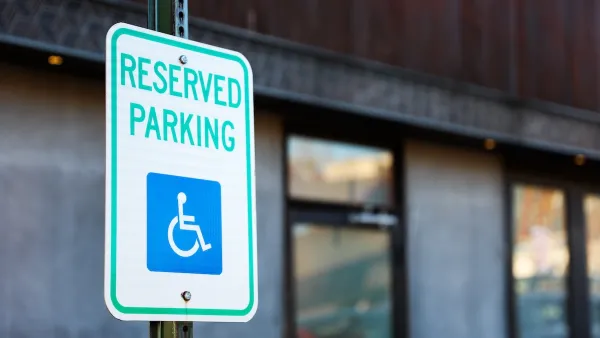A new study finds that the number of units available to those with a disability is insufficient to meet the growing needs of an aging population.

A new study released by Harvard University has found that the stock of housing suitable to meet the needs of the disabled is woefully insufficient. CityLab's Gillian B. White reports that among the study's findings are that nearly 7 million renter households in the United States include a member with a disability. The number of rental units outfitted with the necessary enhancements to serve those with disabilities, including lowered light fixtures and wider doors to accommodate wheelchairs, among others, is only 1 percent of all rental units (or 365,000 apartment units). White notes that the findings are significant for the country’s aging population.
Thinking about the quality of the rental stock is especially important now, as the population of the U.S. is starting to skew older and the share of Baby Boomers who rent instead of own increases. In fact, the over-50 age group has grown significantly in the past decade, making up more than 50 percent of all rental growth during that period. As this cohort ages, it’s going to be a problem that so few rentals cater to those who, say, have difficulty walking or suffer from chronic arthritis.
FULL STORY: The Housing Crisis for Americans With Disabilities

Maui's Vacation Rental Debate Turns Ugly
Verbal attacks, misinformation campaigns and fistfights plague a high-stakes debate to convert thousands of vacation rentals into long-term housing.

Planetizen Federal Action Tracker
A weekly monitor of how Trump’s orders and actions are impacting planners and planning in America.

In Urban Planning, AI Prompting Could be the New Design Thinking
Creativity has long been key to great urban design. What if we see AI as our new creative partner?

King County Supportive Housing Program Offers Hope for Unhoused Residents
The county is taking a ‘Housing First’ approach that prioritizes getting people into housing, then offering wraparound supportive services.

Researchers Use AI to Get Clearer Picture of US Housing
Analysts are using artificial intelligence to supercharge their research by allowing them to comb through data faster. Though these AI tools can be error prone, they save time and housing researchers are optimistic about the future.

Making Shared Micromobility More Inclusive
Cities and shared mobility system operators can do more to include people with disabilities in planning and operations, per a new report.
Urban Design for Planners 1: Software Tools
This six-course series explores essential urban design concepts using open source software and equips planners with the tools they need to participate fully in the urban design process.
Planning for Universal Design
Learn the tools for implementing Universal Design in planning regulations.
planning NEXT
Appalachian Highlands Housing Partners
Mpact (founded as Rail~Volution)
City of Camden Redevelopment Agency
City of Astoria
City of Portland
City of Laramie




























